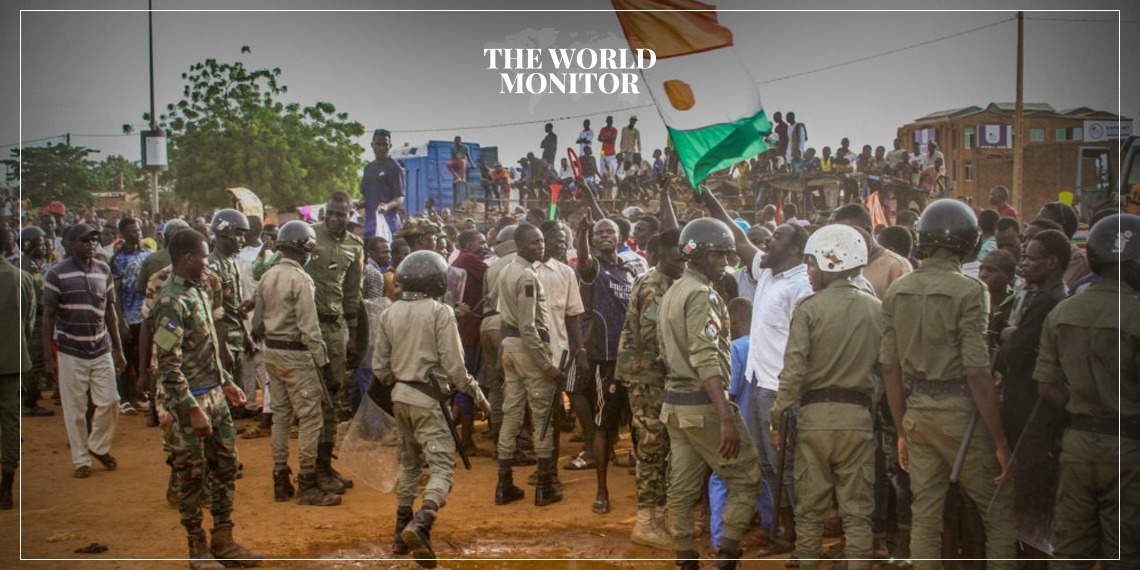In a significant development that marks escalating tensions in Niger, the newly appointed Chief of the General Staff of the Armed Forces, Musa Salau Barmo, has ordered the country’s military into a state of maximum alert. The announcement was made public through Niger’s state radio this past Friday.
“As soon as this message was received, all forces were put on the highest state of alert,” stated the Chief of General Staff in a radio broadcast. Barmo clarified that the decision comes against a backdrop of “increasingly tangible threats of aggression against Niger, and is aimed at avoiding surprises as well as ensuring an appropriate response.”
Musa Salau Barmo, who received his military training in the United States, was appointed by Niger’s Military Council as the Chief of the Armed Forces. His appointment and the subsequent alert order comes weeks after the military announced the ousting of President Mohamed Bazoum on July 27, detaining him at his residence, closing the country’s borders, and imposing a curfew.
In a retaliatory move, the Economic Community of West African States (ECOWAS) has imposed sanctions on Niger and has indicated the possibility of military intervention to restore Bazoum to his position.
Niger has been a hotbed for political instability and faces multiple security threats, including insurgencies from extremist groups. The military’s move to a state of high alert amplifies concerns over the stability of the region and puts international players on notice. It remains to be seen whether the ECOWAS will follow through on its threat of military intervention, and how the internal dynamics of Niger’s politics will unfold in the days to come.
The decision to put Niger’s army on high alert comes at a time of political and security turbulence, not only within Niger but also in the broader Sahel and West Africa region. A variety of factors contribute to this decision:
Niger has been facing political unrest, marked recently by the military ousting of President Mohamed Bazoum. A transitional military council led by Musa Salau Barmo, who is U.S.-trained, has taken charge. This adds another layer of complexity to Niger’s already fragile political landscape.
Niger is in a challenging neighborhood, sharing borders with Libya, Mali, and Nigeria, among other nations. It has been a hotbed for extremist activities, including those carried out by Boko Haram, Al-Qaeda in the Islamic Maghreb (AQIM), and Islamic State West Africa Province (ISWAP).
ECOWAS (Economic Community of West African States) has reacted strongly against the military ousting of the elected president, imposing sanctions on Niger and even suggesting the possibility of military intervention. Such a move could have a domino effect on the already precarious stability of the region.
The U.S. and France, among other Western nations, have vested interests in the Sahel region due to the ongoing fight against extremism. The elevation of a U.S.-trained officer to the position of Chief of the General Staff of the Armed Forces might have implications for international involvement and strategies in the region.
The high alert may also impact the general populace, affecting daily life and possibly resulting in protests or other forms of civil unrest. The military curfew and border closures already indicate heightened controls over civilian movements.
In summary, the decision to put Niger’s army on high alert is a consequential one, affecting various aspects of life and politics in Niger and potentially having broader implications for the Sahel and West Africa. Given the multi-faceted challenges facing the country, from political instability to regional security concerns, this move marks a critical moment that could shape Niger’s future in significant ways.






